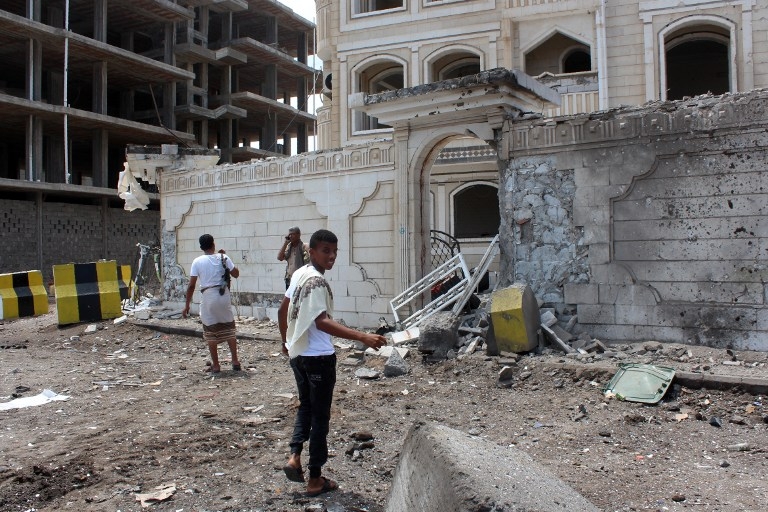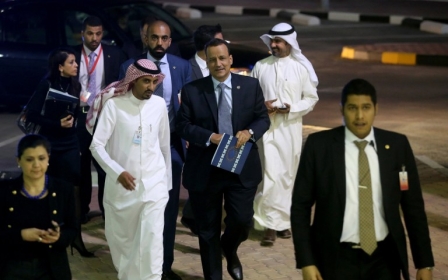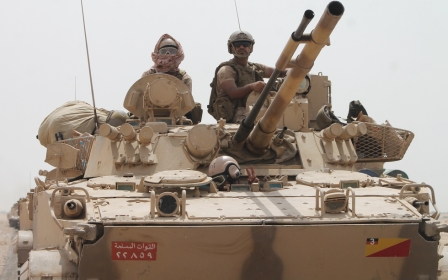Yemen suicide bomber targets Aden police chief

A suicide bomber targeted the police chief of Yemen's second city Aden on Thursday, in the latest attack against senior officials at the base of the Saudi-backed government, a security official said.
The bombing came after loyalist forces backed by a Saudi-led military coalition seized the key southeastern port city of Mukalla and the nearby airport and oil facilities from al-Qaeda, ending a year-long occupation by the militants.
General Shallal Shayae escaped unharmed from the attack but several people were wounded when the bomber blew up a vehicle packed with explosives, the official said.
A witness said the bomber was stopped at a checkpoint on the perimeter of the compound around the general's house, where he blew himself up.
There was no immediate claim of responsibility for the bombing, but Shayae has survived attacks by al-Qaeda more than once.
In February, suspected al-Qaeda militants opened fire on a convoy carrying Shayae and Aden Governor Aidarus al-Zubaidi, but they escaped unharmed.
Shayae and Zubaidi also survived a car bombing that targeted their convoy in Aden on 5 January, killing two of their guards.
The attack in the city follows the killing there on Monday of an 18-year-old known for his online criticism of Islamic militancy.
Omar Batawil was found Monday in a street in the Sheikh Othman neighbourhood, with a bullet hole in his head and two in the chest, relatives said.
"Omar was kidnapped near his family's house by gunmen who killed him," a relative told the AFP news agency, blaming "radical Islamists".
A spokeswoman for Doctors Without Borders (MSF), Malak Shaher, said Batawil was taken to a hospital operated by the relief agency in Aden, where he succumbed to his wounds.
No one has claimed the killing of Batawil, but local officials have said the attack was linked to his Facebook posts advocating secularism.
Aden has seen a growing militant presence since loyalist forces backed by the Saudi-led coalition drove Houthi rebels out of the city in July.
For the first 12 months of the intervention that the coalition launched in March last year, it focused its firepower on the rebels, creating a power vacuum that was exploited not only by al-Qaeda, but also by rival militants of the Islamic State (IS) group.
As a ceasefire with rebels went into effect on 11 April, the loyalists and their allies turned their guns on the militants, driving them out of a string of southern provincial capitals and imposing heavy losses.
Washington regards al-Qaeda's Yemen-based branch as its most dangerous and has waged a drone war against its commanders ever since 2002.
Middle East Eye propose une couverture et une analyse indépendantes et incomparables du Moyen-Orient, de l’Afrique du Nord et d’autres régions du monde. Pour en savoir plus sur la reprise de ce contenu et les frais qui s’appliquent, veuillez remplir ce formulaire [en anglais]. Pour en savoir plus sur MEE, cliquez ici [en anglais].




